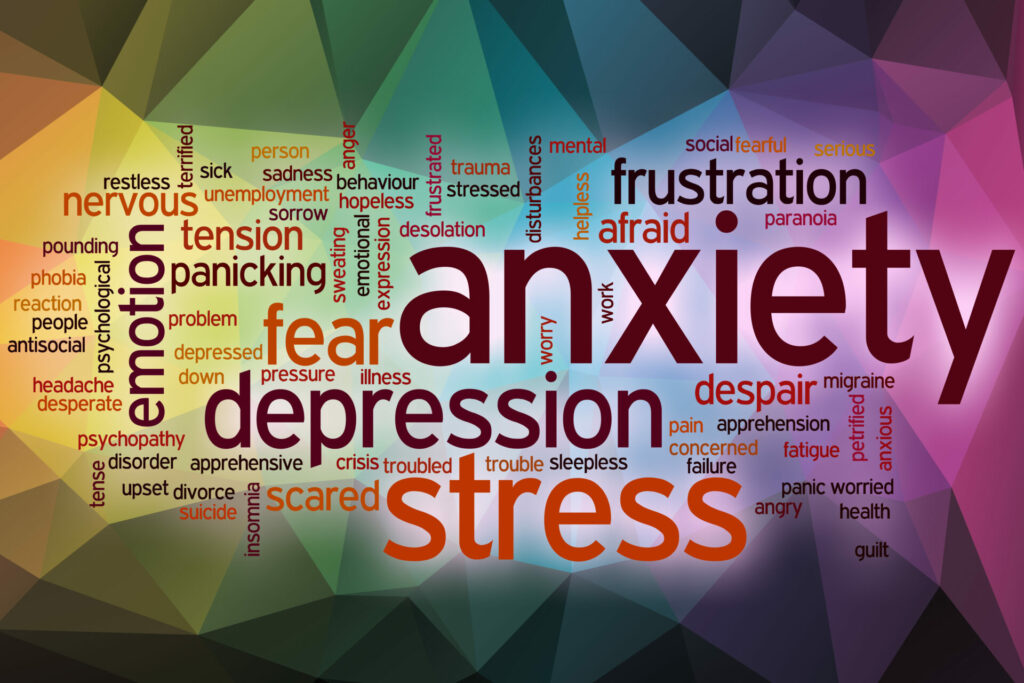Posts Tagged ‘#blackwomendiscrimination’
Workplace Trauma: masking + anxiety + depression + PTSD
Masking is a mental health term that describes ways to hide, suppress or camouflage symptoms of anxiety, depression and post-traumatic stress disorder (PTSD). In the workplace, it refers to fitting into the cultural environment to maintain your job and relationships without anyone knowing what is going on inside. For Black women, masking happens often, and long term, it can spike the stress hormone cortisol leading to mental and physical health issues.
“We’re so into mask-wearing that we don’t pay attention to what our internal sensor, our intuition, our common sense is telling us,” says Dr. Angela Neal-Barnett, director of the Program for Research on Anxiety Disorders in African Americans (PRADAA) at Kent State University in Ohio.
Neal-Barnett says dreading going into the workplace could indicate one is struggling with anxiety or depression. “If you’re out in the parking lot willing yourself to go into the building, okay, that’s a sign that something is wrong not only in the workplace, but you want to take stock of your anxiety, depression and PTSD.”
“Anxiety can show up as agitation, irritability, hostility and anger, which can feed into the ‘angry Black woman’ stereotypes we often try to avoid.”
Symptoms of anxiety disorders can present differently in Black women. “Anxiety can show up as agitation, irritability, hostility and anger, which can feed into the ‘angry Black woman’ stereotypes we often try to avoid,” says Dr. Shaakira Haywood Stewart, a psychologist in New York.
Seeing anger in Black women can illicit negative labels from others. “We’re quick to say, ‘she’s crazy,’ but not necessarily recognizing the number of boundaries that person has had crossed, and the resentment that can build up from years of neglect or emotional trauma,” says Dr. Afiya Mbilishaka, head of psychology at the University of the District of Columbia, hairstylist and founder of PsychoHairapy.
While many avoid being angry because of the stereotypes and labels, embracing that emotion can be a healthy choice. “Getting angry is better than internalizing it,” says Neal-Barnett. “Because what happens when you internalize it? It’s all your fault. But racism, which is what you’re experiencing, is not your fault.”
Another symptom is being in a perpetual state of fatigue. “Exhaustion can be a silent killer,” warns Haywood Stewart. “You’ll hear from patients, ‘I’m so tired,’ and they think it’s because of working a lot, but it can lead to hypertension, pre-diabetes and fibroids.” Haywood Stewart cautions against preoccupation with trauma, which can manifest through repetitive discussions about the traumatic events, persistent flashbacks and recurring dreams of the incidents. It is important to find an outlet and someone to talk to about the issues that are causing mental anguish.
“Getting angry is better than internalizing it.”
For many Black women, the initial person who notices something is wrong may be an unlikely source. “Probably the first person who’s going to tell you something is wrong is your hairdresser,” says Neal-Barnett. They often hear about the issues in-depth, and see you regularly enough to be aware of mental and physical changes. For this very reason, she has a licensed hair professional on her research team because she says they are vital in diagnosing mental health issues. “You may sit in the chair and hear, ‘Girl, what is going on?’ because our hair tells a story about what we are going through.”
At that point, Neal-Barnett emphasizes the importance of seeking mental health assistance, making an appointment with your physical doctor and seeking legal advice—which may be difficult for some as they worry about the stigma associated with complaining and their job security. “For many women, they feel if they are not working, then what happens to the family in terms of keeping a roof over people’s heads.” She recommends using accrued Personal Time Off (PTO) for self-care and talking to your doctor about whether using resources, such as the Family Medical Leave Act (FMLA), are options.
When asked if the workplace is safe for Black women, Haywood Stewart answered emphatically, “No, it’s not.”
The workplace can be a harmful environment, and it is easy for Black women to become complacent and accept marginalization when it has become commonplace. “Some of the things happening to us in the workplace are traumatic and harmful,” says Haywood Stewart. “We’ve become used to being harmed because it happens over and over again.”

When your symptoms begin affecting personal relationships outside of work, that’s a sign that you need to seek help. “When the people you love start avoiding your calls, you find friendships and romantic relationships deteriorating; it’s time to get help,” says Haywood Stewart.
Neal-Barnett highlights that although workplace-induced stress can feel isolating, talking to others about these experiences is important. “You are not alone, and you are not the only one.” She says that it happens every day in corporate America and academia, which has adopted a corporate model. She explains that Black women may need to venture outside of their comfort zones if they want to see changes in their lives. “I know it feels embarrassing, and you feel shame, but if you can set aside that feeling for one minute and tell someone else who is Black, you are going to find hope and a plan to move forward.”

head of psychology at the University of the District of Columbia, hairstylist and founder of PsychoHairapy

psychologist

director of the Program for Research on Anxiety Disorders in African Americans (PRADAA) at Kent State University in Ohio
